News archive
On this page you can search for older news. Choose a topic, type of news or enter your own keyword to filter out news.
View compact
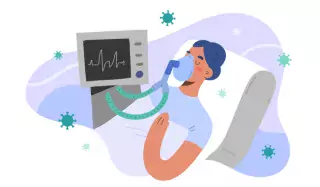
Treating severe COVID-19 patients with the anticancer drug bevacizumab may reduce mortality and speed up recovery, according to a small clinical study in Italy and China that was led by researchers at Karolinska Institutet in Sweden between February and April 2020. On average, blood oxygen levels, body temperature and inflammatory markers significantly improved in patients treated with a single dose of bevacizumab in addition to standard care. The research is published in Nature Communications.
News

It is necessary to develop additional COVID-19 vaccines, as different vaccine approaches have their advantages and disadvantages and may work synergistically. Researchers at Karolinska Institutet in Sweden now report that they have developed a prototype vaccine against SARS-CoV-2 using a DNA vaccine platform that is inexpensive, stable, easy to produce, and shows a good safety profile. A study published in Scientific Reports shows that the vaccine induces potent immune responses in mice.
News
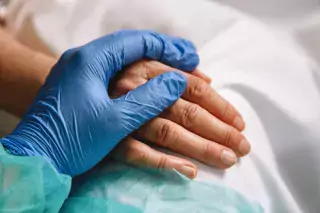
Individual variations in how the immune system responds to SARS-CoV-2 appear to impact the severity of disease. Researchers at Karolinska Institutet have now been able to show that patients with severe COVID-19 have significantly elevated levels of a certain type of immune cells in their blood, called myeloid-derived suppressor cells. The study published in the Journal of Clinical Investigation may bring an increased understanding of how early immune responses impact disease severity.
News
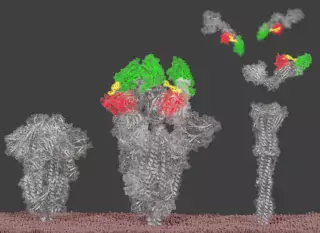
Researchers at Karolinska Institutet have developed, in collaboration with researchers in Germany and the U.S., new small antibodies, also known as nanobodies, which prevent the SARS-CoV-2 coronavirus from entering human cells. The research study, published in Science, shows that a combined nanobody had a particularly good effect – even if the virus mutated. According to the researchers, the nanobodies have the potential to be developed into a treatment for COVID-19.
News

So far, little research has been done on the risk of children being seriously affected by COVID-19 when the schools were open. A study from Karolinska Institutet has now shown that one child in 130,000 was treated in an intensive care unit on account of COVID-19 during the period March-June. The work has been published as a letter to the editor in New England Journal of Medicine.
News
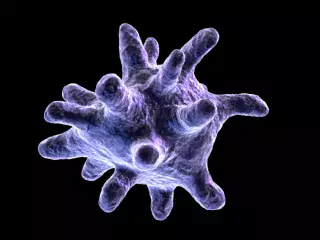
In some cases, immune cells in the lungs can contribute to worsening a virus attack. In a new study, researchers at Karolinska Institutet describe how different kinds of immune cells, called macrophages, develop in the lungs and which of them may be behind severe lung diseases. The study, which was published in Immunity, may contribute to future treatments for COVID-19, among other diseases.
News
Carin Lennartsson has been granted funding to collect data and research materials linked to the COVID-19 pandemic. The project is entitled “The Swedish Panel Study of Living Conditions of the Oldest Old – SWEOLD COVID-19”.
News
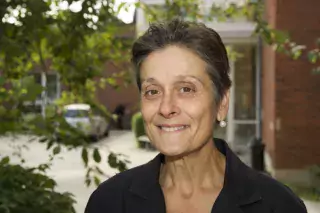
Rosaria Galanti receives NOK 10 million from NordForsk. The grant is awarded for collaborative projects between Nordic and Baltic Countries concerning clinical and public health aspects of COVID-19, especially in combination with the use of tobacco such as smoking and snus.
News
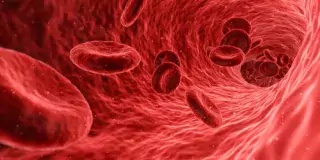
DOAC (direct oral anticoagulant) pills are used in the treatment of atrial fibrillation by preventing blood clots. Even though blood clots are thought to contribute to complications from the new coronavirus infection, users of this class of drug do not seem to be protected against severe COVID-19, reports a large Swedish registry study from Karolinska Institutet published in The Journal of Internal Medicine.
News

Concerns have been raised that the use of a common group of medications called RAS inhibitors could facilitate SARS-CoV-2 infection, impact COVID-19 disease severity and worsen prognosis. However, in a new nationwide registry-based study from Karolinska Institutet, including almost 1.4 million patients, use of RAS inhibitors was not associated with increased risk of hospitalisation or death from COVID-19. The study has been published in the European Journal of Heart Failure.
News

Worry about COVID-19 dominates some people’s lives in a way that has an impact on their health. A group of researchers at Karolinska Institutet in Sweden has developed a digital CBT programme that significantly reduced the participants’ unhelpful worry about the pandemic. The study is published in Psychotherapy and Psychosomatics and the programme is available through 1177 Vårdguiden.
News
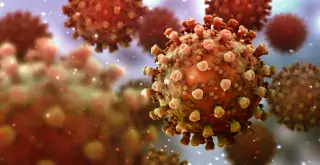
Researchers at Karolinska Institutet in Sweden report promising results from an in vitro combination therapy against COVID-19. In a study published in EMBO Molecular Medicine, the researchers show that a combination of remdesivir, an approved drug against COVID-19, and hrsACE2, a medicine currently in phase II trials for COVID-19 treatment, reduced the viral load of SARS-CoV-2 and inhibited viral replication in cell cultures and organoids.
News

The rheumatoid arthritis drug baricitinib can block viral entry and reduce mortality in patients with moderate to severe COVID-19, according to translational research by an international team coordinated by researchers from Karolinska Institutet in Sweden. The findings, published in the journal Science Advances, support the continuation of ongoing randomized clinical trials.
News
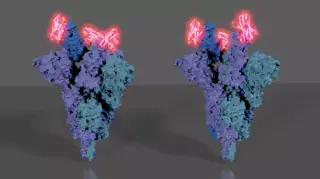
By screening hundreds of synthetic antibodies, researchers at Karolinska Institutet in Sweden and EMBL Hamburg in Germany have identified an antibody that may prevent the new coronavirus from infecting human cells. The study, which is published in the journal Nature Communications, also shows how antibodies can be quickly produced in the event of future pandemics.
News

A study published in Nature shows that a segment of DNA that causes their carriers to have an up to three times higher risk of developing severe COVID-19 is inherited from Neandertals. The study was conducted by researchers at Karolinska Institutet and Max Planck Institute for Evolutionary Anthropology.
News
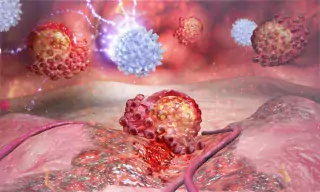
A type of anti-bacterial T cells, so-called MAIT cells, are strongly activated in people with moderate to severe COVID-19 disease, according to a study by researchers at Karolinska Institutet in Sweden that is published in the journal Science Immunology. The findings contribute to increased understanding about how our immune system responds against COVID-19 infection.
News
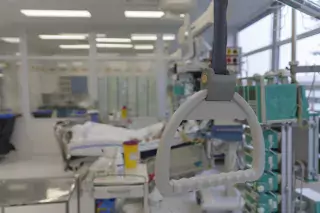
More than 10 percent of young and previously healthy people who develop severe COVID-19 have misguided antibodies that attack the immune system itself, and another 3.5 percent carry a specific genetic mutation. This is according to new research published in Science by an international consortium involving researchers at Karolinska Institutet in Sweden.
News

In a study published in JAMA researchers at Karolinska Institutet and Karolinska University Hospital have examined the association between a positive SARS-CoV-2 test during pregnancy and complications in mothers and their newborn babies. Almost two out of three pregnant women who tested positive for SARS-CoV-2 were asymptomatic and the researchers found no higher prevalence of complications during delivery or of ill-health in the neonates. However, preeclampsia was more common in infected women.
News
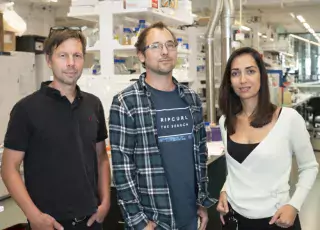
Researchers at Karolinska Institutet have developed a method for fast, cheap, yet accurate testing for COVID-19 infection. The method simplifies and frees the testing from expensive reaction steps, enabling upscaling of the diagnostics. This makes the method particularly attractive for places and situations with limited resources, for repeated testing and for moving resources from expensive diagnostics to other parts of the care chain. The study is published in Nature Communications.
News

Researchers at Karolinska Institutet are taking part in three projects funded as part of the EU’s second major investment in research on the new coronavirus sars-cov-2, COVID-19 and the pandemic. The total research grant for KI amounts to just over SEK 14 million.
News
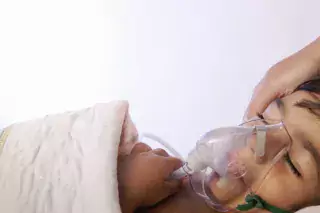
Researchers at Karolinska Institutet and Science for Life Laboratory in Sweden and Tor Vergata University of Rome in Italy have mapped the immune response in children affected by a rare but life-threatening inflammatory syndrome associated with COVID-19. The study, which is published in the scientific journal Cell, reveals that the inflammatory response differs from that in Kawasaki disease and severe acute COVID-19.
News
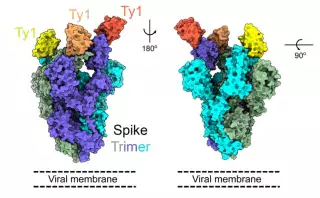
Researchers at Karolinska Institutet in Sweden have identified a small neutralizing antibody, a so-called nanobody, that has the capacity to block SARS-CoV-2 from entering human cells. The researchers believe this nanobody has the potential to be developed as an antiviral treatment against COVID-19. The results are published in the journal Nature Communications.
News

The Unit for Bioentrepreneurship (UBE) and the Health Informatics Centre (HIC) at the Department of Learning, Informatics, Management and Ethics, have been granted an EU Innovation Action Grant for the project COVID-X, which aims to contribute to the public health preparedness and response in the context of the ongoing pandemic of COVID-19 and to ensure the availability of critical technologies and tools.
News

A blood test on hospital admission showing the presence or absence of SARS-CoV-2 can identify patients at a high risk of severe COVID-19. Admitted patients without virus in their blood have a good chance of rapid recovery. This according to researchers at Karolinska Institutet and Danderyd Hospital in a new study published in the scientific journal Clinical Infectious Diseases.
News

Since 15 June, the requirements for distance learning have been eased and this autumn there will be a gradual return to KI's campus. But the unusual spring semester has yielded valuable lessons and experiences. Head of Division Ann Langius-Eklöf and lecturer Carina Georg recount what it was like for the nursing education programmes – to work against the clock.
News

On 17 March 2020, the Public Health Agency of Sweden encourages Swedish universities and upper-secondary schools to conduct distance learning in order to reduce the spread of COVID-19. The campus closes on 18 March, but teaching must continue. For KI’s teachers, it’s the start of an intensive undertaking, one that proved particularly challenging for the Unit for Teaching and Learning.
News
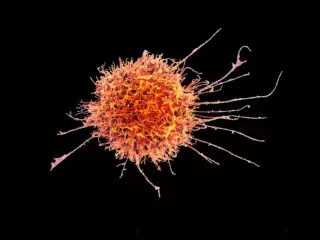
Researchers may have come one step closer toward understanding how the immune system contributes to severe COVID-19. In a study published in Science Immunology, researchers at Karolinska Institutet in Sweden show that so-called natural killer (NK) cells were strongly activated early after SARS-CoV-2 infection but that the type of activation differed in patients with moderate and severe COVID-19. The discovery contributes to our understanding of development of hyperinflammation in some patients.
News
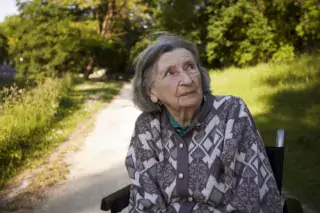
New research from Karolinska Institutet shows that the degree of frailty, a measure of a person’s functional level before contracting the disease, can better predict COVID-19 survival than the patient’s age. The analysis of 250 multimorbid older adults who received care for COVID-19 at the Aging Theme at Karolinska University Hospital in Huddinge, Sweden also shows that three out of four of these patients survived. The study has been published in the scientific journal JAMDA.
News
COVID-19 hits nations worldwide. Social restrictions are being put in place in an effort to limit the spread of the corona virus and save lives.
News
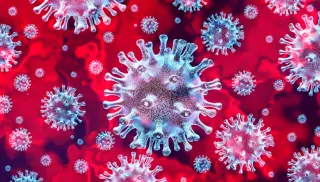
A new study from Karolinska Institutet and Karolinska University Hospital shows that many people with mild or asymptomatic COVID-19 demonstrate so-called T-cell-mediated immunity to the new coronavirus, even if they have not tested positively for antibodies. According to the researchers, this means that public immunity is probably higher than antibody tests suggest. The article has been published in the esteemed scientific journal Cell. [This news article has been updated]
News
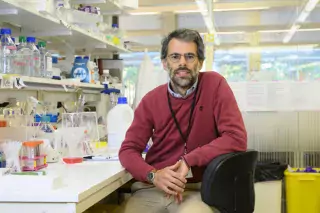
The pharmaceutical company Chiesi donates SEK 320,000 to a research project at Karolinska Institutet to develop a new method for large scale COVID-19 tests. The goal is to be able to follow the development of the virus in populations and community groups. The project is led by Nicola Crosetto, researcher at the Department of Medical Biochemistry and Biophysics.
News
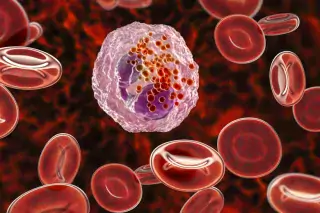
By conducting advanced analyses of immune system activation in patients with severe COVID-19, researchers at Karolinska Institutet have managed to identify several cell types that play a key part in the immune response to the new coronavirus and the hyperinflammation seen in severe cases of the disease. The results are published in the scientific journal Cell Reports Medicine.
News
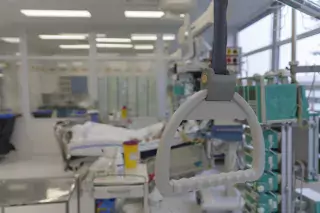
The drug tocilizumab, which is used in the treatment of various forms of arthritis, is associated with shorter time on ventilation and shorter hospital stays for patients with severe COVID-19, a new study from Karolinska Institutet and Karolinska University Hospital published in The Journal of Internal Medicine reports.
News

A literature review coordinated by Karolinska Institutet in Sweden and McMaster University in Canada demonstrates that cloth face masks provide clinically useful levels of filtration, which has the potential to reduce the spread of viruses such as SARS-CoV-2. The findings, now published in the journal Mayo Clinic Proceedings, support the wearing of cloth masks to reduce the spread of the new coronavirus, according to the researchers.
News
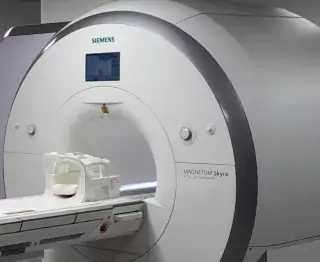
Injuries in the nervous system of patients with severe COVID-19 are revealed by magnetic resonance imaging and computed tomography. In a study of 185 patients, researchers at KI and Karolinska University Hospital show an affection of microscopic blood vessels and inflammation in the brain, meninges and nerves. The results are published in Radiology.
News

The COVID-19 pandemic caused by the new coronavirus has created an unprecedented public health challenge globally. Little was known about how the infecting cells respond to the virus and how the virus hijacks the host cellular machinery. A study led by researchers at Karolinska Institutet published in Emerging Microbes & Infection gives new insights into the virus-host interplay enabling newer ideas to tackle the virus.
News
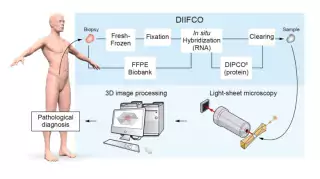
Researchers at Karolinska Institutet in Sweden have developed a new method for analysing intact tumour samples in 3D on a molecular level. The study is a collaboration with Karolinska University Hospital and is published in Nature Biomedical Engineering. Now the researchers are planning to use the method to study tissue samples from COVID-19 patients in the hope that it will provide information on where and how the new coronavirus attacks different organs.
News

Common respiratory bacteria carried in the nose by healthy children, can sometimes cause life-threatening infections. Birgitta Henriques Normark, Professor at the Department of Microbiology, Tumour and Cell Biology, is investigating why this occurs. The Royal Swedish Academy of Sciences has now awarded her the Torsten Söderberg Academy Professorial Chair in Medicine – a SEK 10 million grant over a period of five years.
News
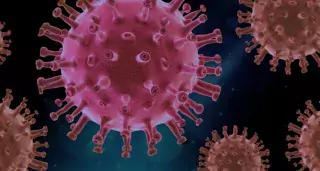
A drug against rheumatoid arthritis called baricitinib could potentially be repurposed to treat patients with COVID-19, according to a study conducted by an international research team including researchers at Karolinska Institutet in Sweden. The findings, published in the journal EMBO Molecular Medicine, represent an example of how artificial intelligence (AI)-algorithms could help identify existing drugs as potential therapies against as new illnesses.
News

It is highly likely that children can transmit the new coronavirus, which causes COVID-19, but several factors suggest that children are unlikely to be the main drivers of the pandemic. Opening up schools and kindergartens is unlikely to impact COVID-19 mortality rates in older people, according to a systematic review that spanned 47 publications and was conducted by researchers at Karolinska Institutet. The paper is published in the scientific journal Acta Paediatrica.
News
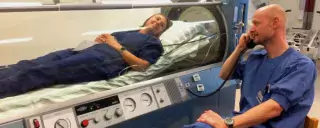
Researchers at Karolinska Institutet are coordinating a recently initiated multi-national clinical trial that will evaluate the effect of hyperbaric oxygen treatment (HBO) in severe cases of COVID-19. A total of 200 adults admitted to hospital with moderately severe COVID-19 pneumonia will be recruited. The trial could start as early as next week at a hospital in Region Blekinge, Sweden.
News

EU-financed Innovative Medicines Initiative (IMI) has boosted funding for research on diagnostics, medicines and vaccines against the new coronavirus SARS-CoV-2. Ali Mirazimi, researcher at Karolinska Institutet and Sweden’s National Veterinary Institute (SVA), coordinates one of eight projects provisionally selected among 144 applicants.
News

In severe cases of COVID-19, a massive release of the endogenous protein HMGB1 in the lungs may contribute to pulmonary inflammation and tissue damage, according to a recent review article published in the journal Molecular Medicine. The researchers conclude that the inflammation could hypothetically be treated with an HMGB1 inhibitor.
News

Sweden can contribute solid data to Solidarity, a global study run by the WHO to test the efficacy and safety of drugs considered for use in the treatment of COVID-19, says Soo Aleman, docent and consultant, and coordinator of the Swedish arm of the study.
News
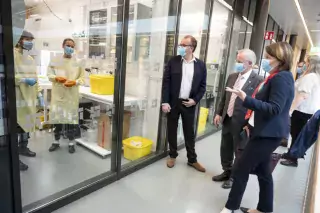
The British Ambassador to Sweden, Judith Gough, visited KI on Walpurgis Eve to discuss the COVID-19 research being led by Lars Engstrand at KI and SciLifeLab in collaboration with KTH and with primary funding from Knut and Alice Wallenberg Foundation.
News
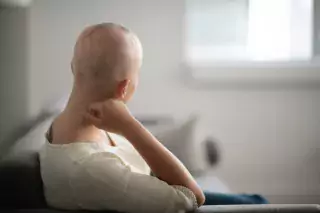
Comprehensively adapting cancer care and clinical cancer research to the COVID-19 pandemic is a necessity, researchers and doctors at Karolinska Institutet and Karolinska University Hospital write in a paper published in the journal Nature Medicine. In it, seven top European cancer centres propose adaptations to protect patients.
News

An international network of researchers in 10 countries are to study the effectiveness of homeschooling during the ongoing COVID-19 pandemic. The gathering of data via online surveys in the various languages is being led by researchers at Karolinska Institutet. The aims of the study are to look at the challenges facing families during the COVID-19 pandemic and to produce recommendations and technical methods for both homeschooling and teaching in general.
News

During the new coronavirus outbreak many researchers at Karolinska Institutet are contributing their competence and views to the public flow of information. Sharing knowledge is important. But researchers, particularly, must also base their reasoning on facts and express themselves clearly, including about matters of uncertainty, says Jan Albert, professor of infectious disease control at Karolinska Institutet and convenor of KI’s COVID-19 expert team.
News
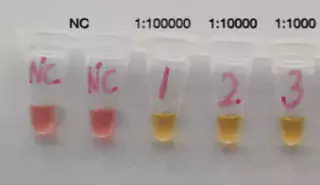
Researchers at Karolinska Institutet have together with researchers in China developed a new diagnostic test for COVID-19. The test can be performed without advanced laboratory equipment and deliver the result in about half an hour, according to a study published in the journal Clinical Chemistry. The researchers are now working on verifying the test results on confirmed COVID-19 patients at the Karolinska University Hospital.
News

The outbreak of the new corona virus is the cause of much anxiety, an anxiety that can lead to insomnia. Yet sleep is essential to our mental and physical health. Two psychologists at Karolinska Institutet have now collected some evidence-based tips for getting a good night’s sleep in the pandemic era.
News
